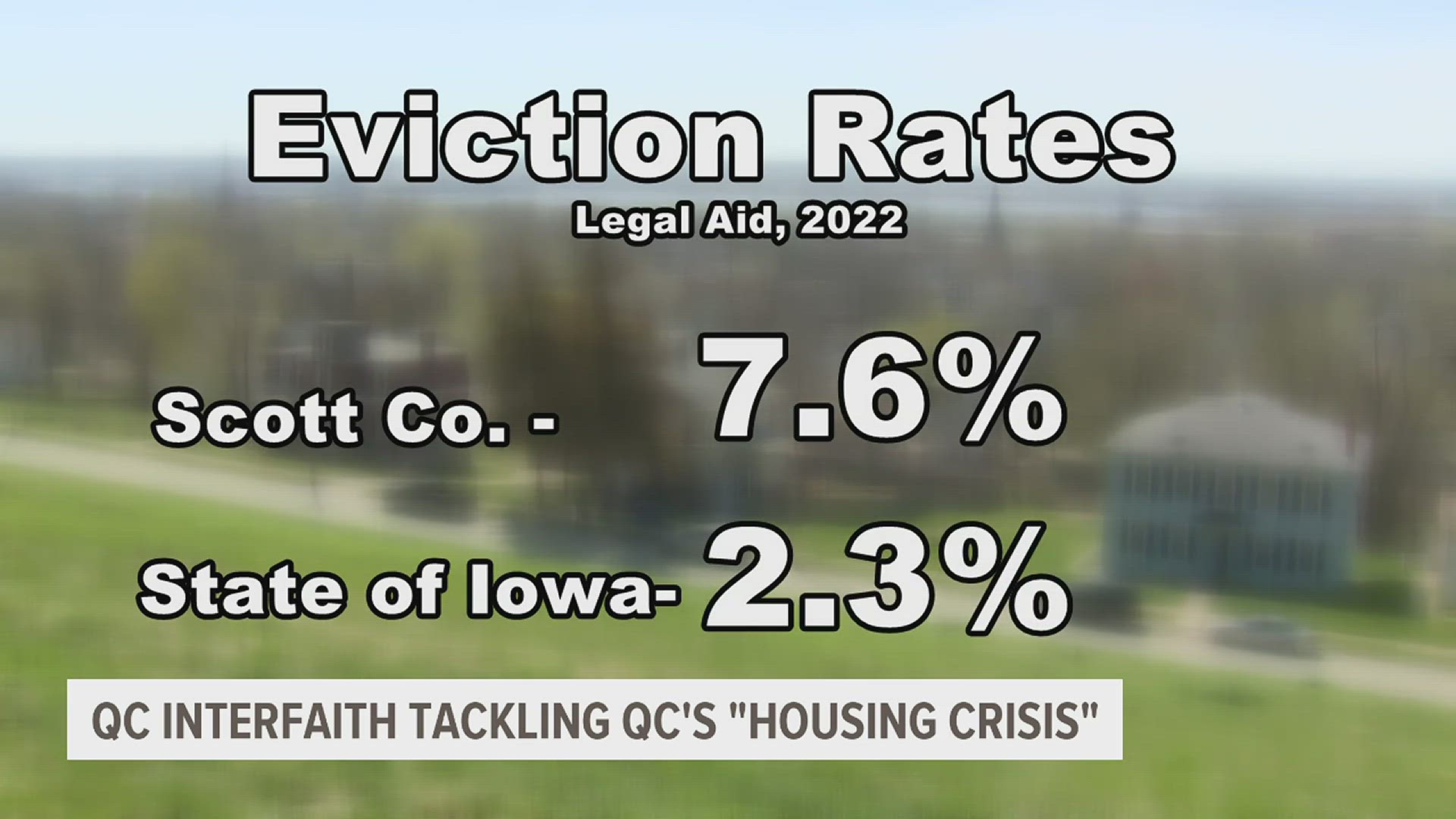DAVENPORT, Iowa — Eviction rates in Davenport and Scott County are rising faster than the rest of the state. That's according to a 2022 Iowa Legal Aid report given to local media members at a Quad Cities Interfaith press conference on Thursday.
The conference was held at Cobblestone Place in Davenport by Interfaith and the QC Housing Council to address what they deem is a "housing crisis."
"It's been a lengthy problem, at least for Scott County, Iowa, where we have the worst record for evictions in the state," QC Housing Council Director Leslie Kilgannon told News 8's Collin Riviello.
Kilgannon announced a new advocacy group called Community Alliance of Tenants (CAT).
"We're looking to create solutions, one of which is this Community Alliance of Tenants, Kilgannon said. "So that tenants on both sides of the river know their rights [and] can find ways to stave off eviction by talking and mediating with landlords before they get evicted."
QC tenants can go to CAT to receive free guidance about how to navigate various housing issues like eviction and tenant-landlord disputes. Something the QC Housing Council says is needed especially now that moratoriums on evictions have been lifted.
"Well we already had a problem before the pandemic, and of course the pandemic has only exacerbated the problem," Kilgannon added.
According to Eviction Lab, a Princeton University team of researchers, students and website architects, eviction rate is "the number of evictions per 100 renter homes in an area."
And according to Iowa Legal Aid, before the pandemic, Scott County had an eviction-per-unit rate of 7.6% in 2019, while the rest of the state had a rate of 2.3%.
Iowa Legal Aid claims evictions fell not only in Scott County, but also nationwide during the pandemic because it was "largely driven by COVID-19 related moratorium, rental assistance programs and pandemic unemployment enhancements."
However Scott County's decrease was not proportionate to the rest of Iowa.
During 2020, Iowa Legal Aid says Scott County saw evictions drop by about a third (29.5%) from the year prior, but the rest of Iowa collectively saw that rate drop by nearly half (44.8%).
"[CAT] provides a platform [for tenants]," QC Interfaith Lead Organizer Mayra Hernandez said. "[It gives those who think] 'who am I to ask for change?' to realize that I can ask for that change. I can lead this. I can be powerful and my story is powerful."

